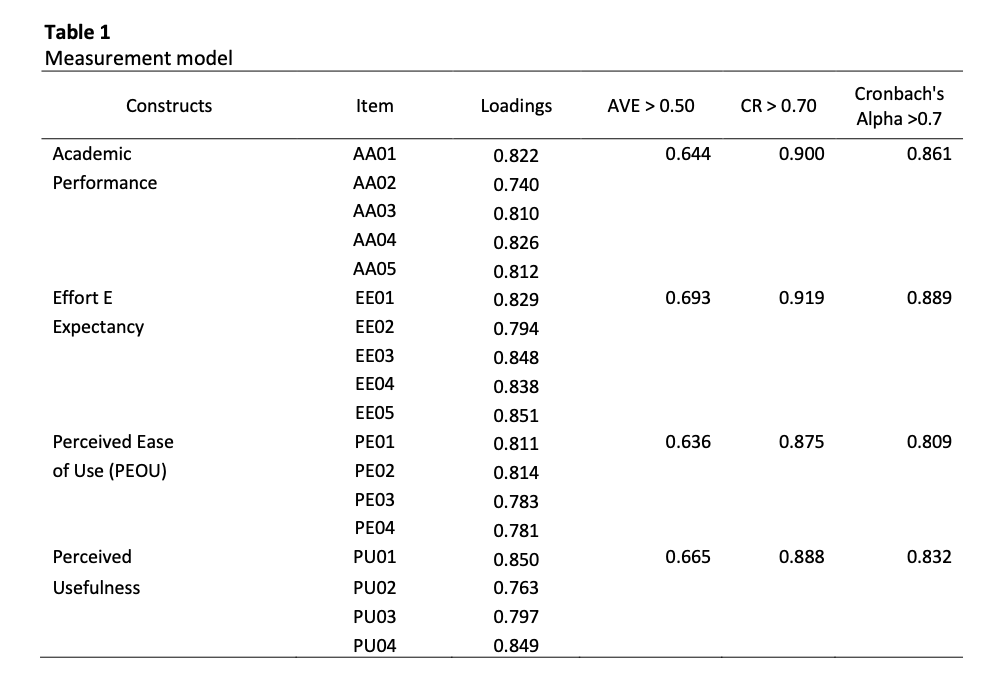AI-Supported Academic Outcomes: The Role of ChatGPT in Student Performance
Keywords:
ChatGPT, academic performance, effort expectancy, perceived usefulness, perceived ease of use, PLS-SEMAbstract
The integration of generative artificial intelligence into higher education has raised important questions about its impact on students’ learning outcomes. This study investigates the influence of ChatGPT adoption on academic performance, drawing upon the Technology Acceptance Model (TAM) and the Unified Theory of Acceptance and Use of Technology (UTAUT). Three constructs—Effort Expectancy, Perceived Usefulness, and Perceived Ease of Use—were examined as antecedents of ChatGPT-supported academic performance. Data were collected through a structured questionnaire from 322 undergraduate students and analyzed using SmartPLS 4.0. The measurement model demonstrated satisfactory reliability and validity, while the structural model revealed that all three predictors had significant positive effects on academic performance: Effort Expectancy (β = 0.312, t = 2.794, p = 0.005), Perceived Ease of Use (β = 0.238, t = 2.866, p = 0.004), and Perceived Usefulness (β = 0.261, t = 2.667, p = 0.008). The model explained a substantial proportion of variance in academic performance (R² > 0.50), confirming its explanatory strength. These findings provide empirical evidence of ChatGPT’s potential as an effective educational support tool. The study offers theoretical contributions by extending TAM and UTAUT into the context of generative AI and practical implications for higher education institutions to integrate AI responsibly, balancing innovation with academic integrity.







